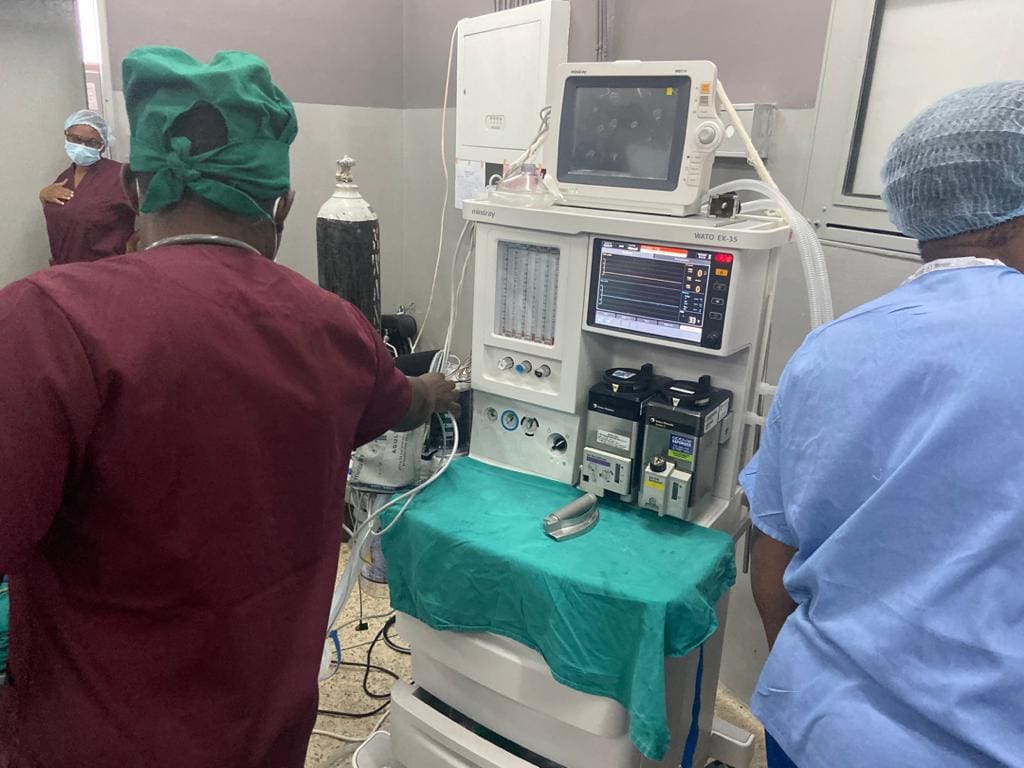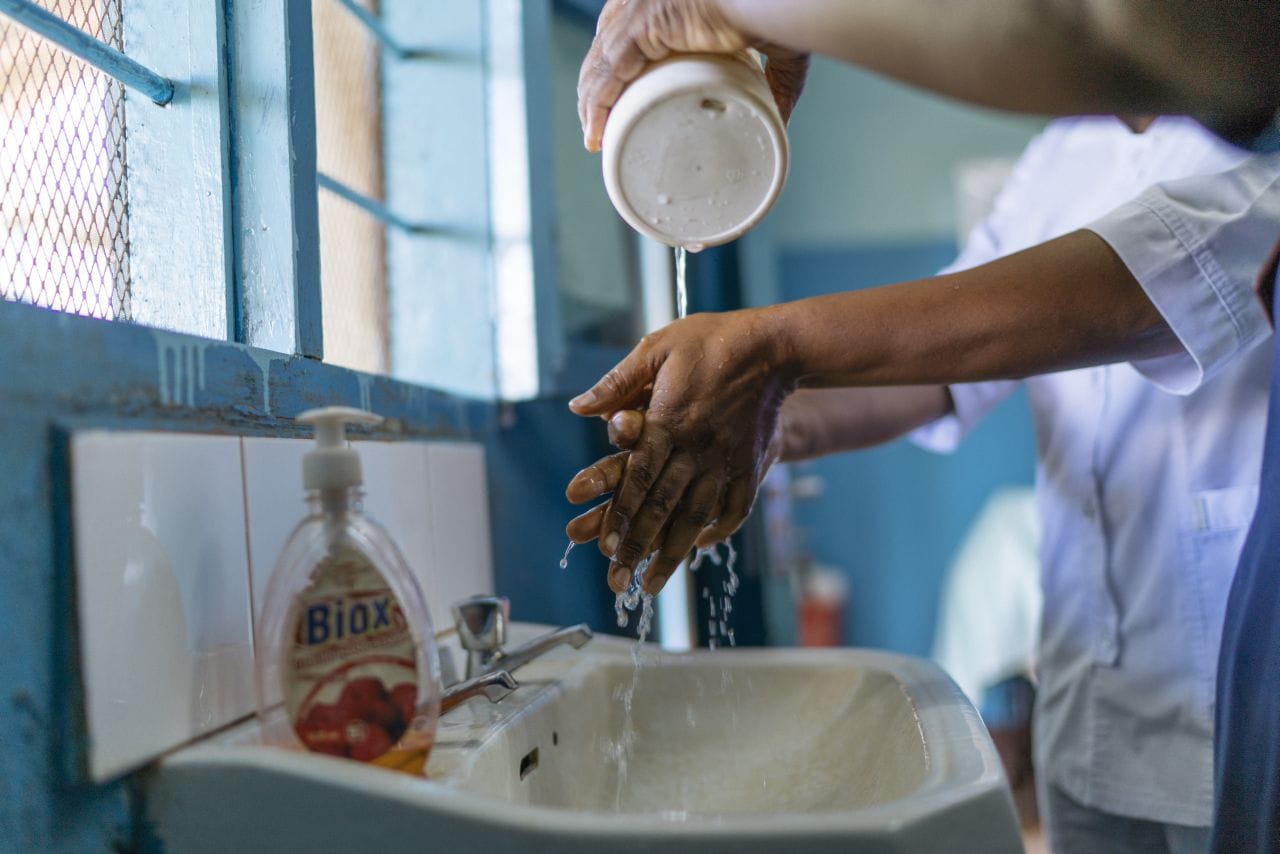Americares began delivering medical products to Tanzania in 1994 and launched health programming in Mwanza in 2010. Americares Tanzania Country Office, located in Mwanza, staffed with professional relief and development workers, coordinates our existing and future programming in the Mwanza, Mara, Shinyanga, and Kigoma regions. We have and continue to work with a variety of international NGOs, national NGOs, governmental, and faith-based groups in Tanzania to serve those affected by poverty or disaster.
Americares operates numerous health projects and programs in Tanzania which touch on each of the Americares global program areas. One major focus of our work in country is maternal and child care.
Working in Tanzania since 1994.
Americares has partnered with Bugando Medical Centre (BMC) since 1995 to deliver free and high-quality medicines and medical supplies to patients in need. Each year, Americares donates products, valued at millions of dollars, to BMC that are delivered via air shipments and sea containers and made available to patients in need at no cost to them.
Americares has been a champion for health worker safety in Tanzania and has strong experience in this area. Americares has partnered with a total of five major hospitals over recent years and provided interventions such as free Hep B vaccinations of health workers, training for health workers in safe work practices, Quality Improvement Team (QIT) strengthening, and infrastructure improvements including building a Center of Excellence in Phlebotomy Training.

A new USAID-funded Americares program – Community Partnerships for Respectful Care (CPRC) – aims to contribute to a reduction in mortality and morbidity for women and children in Tanzania over five years by integrating respectful care practices into existing services and empowering women to seek essential services. An estimated 1.2 million women of reproductive age and children under 5 in the Mwanza, Mara and Shinyanga regions of Tanzania, are expected to benefit by the end of 2025.
Americares Obstetric Fistula Repair Project, started in 2010, comprehensively addresses the physical and psychosocial trauma of this childbirth injury in partnership with Bugando Medical Centre (BMC). Through this collaboration, cost-free surgical repair of obstetric fistulas, as well as pre- and post-operative care and counseling, is available at BMC throughout the year. This project has already helped more than 160 women each year to receive advanced and respectful care.
Bugando Medical Centre is a leading referral and teaching hospital in Tanzania and a long-standing partner of Americares. It serves nearly one-third of the population.
Americares has responded to a variety of acute and protracted emergency situations, including refugee crises in the Kigoma region and infectious disease outbreaks, such as cholera. In such situations, Americares works with health facilities to improve access to infection prevention and control supplies, durable hospital equipment, Information, Education, and Communication materials, and addresses Water, Sanitation, and Hygiene (WASH) challenges.
Finally, Americares provides medicines and medical supplies to U.S.-licensed medical professionals traveling to Tanzania on medical missions through our Medical Outreach Program.
Tanzania was ranked 163 out of 189 countries on the UNDP’s Human Development Index in 2019. Access to healthcare in Tanzania is limited, especially for those who are unable to pay for private or specialized treatment services. This is a significant amount of the population, as over 55% of the population lives in multidimensional poverty and over 68% of the total employed population is classified as working poor, which means they earn less than $3.20 per day.
Neonatal disorders cause the most death and disability combined in Tanzania, and neonatal, infant, and child health is a key area of concern within Tanzania, given the health outcomes for these groups. The neonatal, infant, and under-five mortality rates in Tanzania are 25, 36, and 50 out of 1,000 live births, respectively. Malnutrition drives the most death and disability combined in Tanzania, and is a major challenge and a cause of stunting in 31.8% of children under five in the country.
Pregnancy and delivery for women in Tanzania is notably dangerous, with 524 maternal deaths per 100,000 live births. Only 62 percent of women in Tanzania aged 15-49 attend antenatal care visits at least four times during pregnancy and only 64 percent of deliveries are attended by a skilled health professional. These can be attributed to a combination of a lack of access to affordable care and instances of disrespect and abuse from healthcare providers, which is a major barrier to patients seeking care.
With only 25% of the population in Tanzania using safely managed sanitation services and 14% of the population using surface water for drinking and washing their hands, improving Water, Sanitation, and Hygiene (WASH) services, especially in health facilities, is another crucial public health goal in Tanzania. Safe hygiene practices, sanitary health facilities, and high vaccination rates can collectively help reduce the burden of communicable diseases in Tanzania and prevent disease outbreaks.

Key Health Statistics:
*Sources for Health Snapshot Facts include: UNDP, UNICEF and Tanzania Ministry of Health
Americares successful program helps to keep a nurse, her family and patients safe
